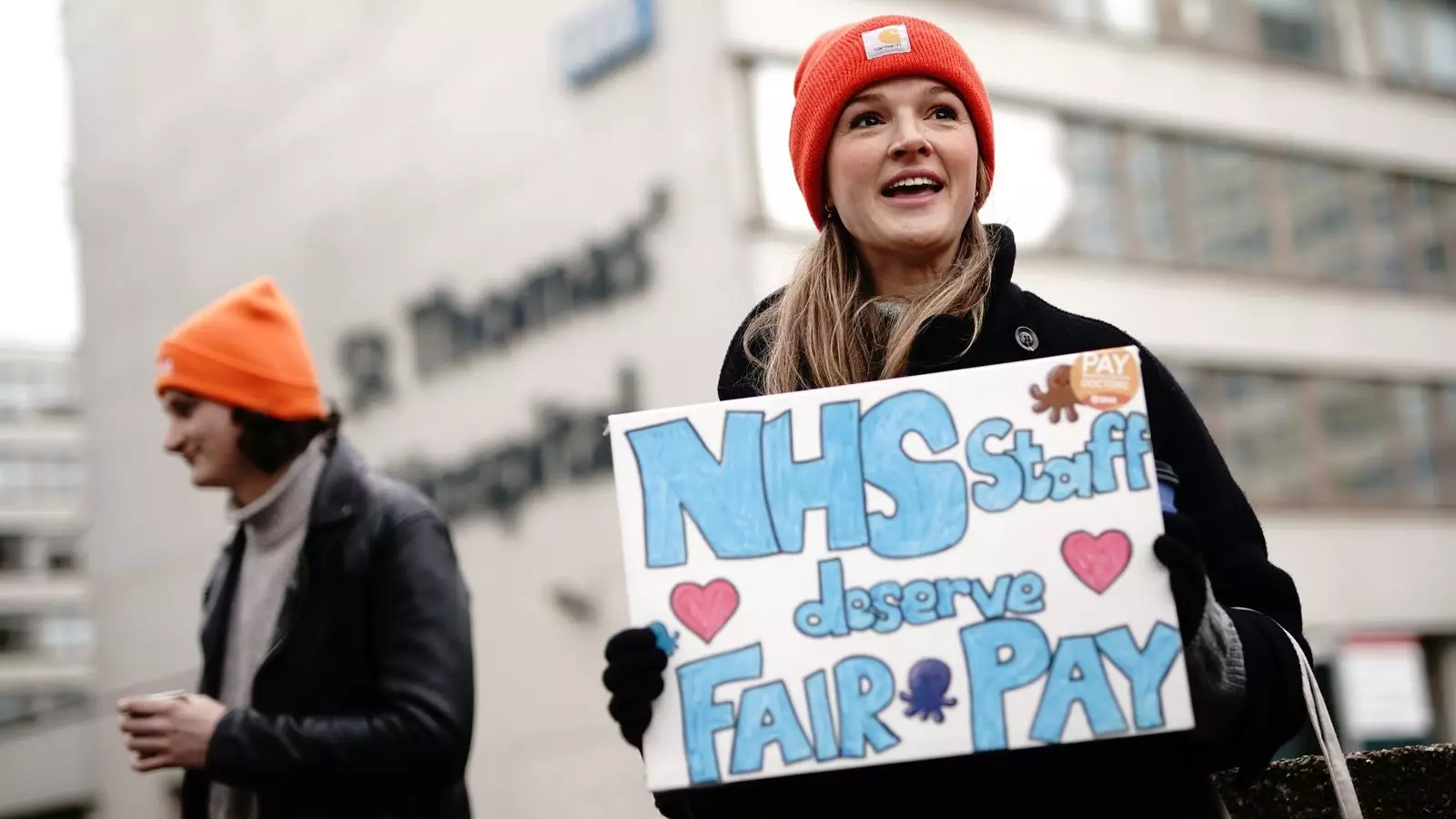The recent developments in the ongoing battle between the government and junior doctors in England have seen the government offering a 22.3% pay rise to end the strike actions that have been taking place. This offer, which is set to take place over two years, has been agreed to be put forward to the members of the British Medical Association’s (BMA) junior doctors committee. If accepted, this offer will put an end to the months of walkouts over pay that have been disrupting the healthcare system in the country.
Junior doctors have been facing significant challenges, advocating for a 35% pay rise to compensate for what they believe is 15 years of below-inflation salary increments. The government’s pay rise offer, although falling short of their initial demands, includes a pay rise between 8.1% and 10.3%, along with a backdated 4.05% increase for 2023-24. Additionally, a 6% pay rise for 2024-2025 topped up by a £1,000 payment equivalent to a pay rise of between 7% and 9% has also been proposed.
Chancellor Rachel Reeves is set to announce the pay rises, emphasizing the need to address spending cuts to fill what she deems as a “£20bn black hole” inherited from the previous government. A government spokesman stressed their commitment to finding a solution and resolving the dispute to put an end to the strikes, which have been detrimental to patients and have impacted waiting lists significantly.
The affordability of the proposed 22.3% pay rise has been a topic of discussion, with experts weighing in on the economic implications. Vicky Pryce, chief economic adviser to the Centre for Economic and Business Research, believes that the government can afford the pay hike, as it is lower than the 35% increase initially demanded by junior doctors. The cost of cancelled operations and appointments due to the strikes has already amounted to an estimated £3bn, making the proposed pay rise a more economically viable option.
Junior doctors have engaged in strikes previously, with the most recent one taking place on 4th July. The push for a pay increase has been a long-standing issue, with negotiations breaking down in the past over disagreements on the proposed pay rises. With the potential end to the strikes on the horizon, there is hope for a resolution to the conflict that has been affecting the healthcare system in England.
The journey of junior doctors in England has been filled with challenges, negotiations, and strikes. The offered pay rise, if accepted, could mark a significant turning point in the ongoing struggle for fair compensation and improved working conditions for these essential healthcare professionals. It remains to be seen how the members of the BMA will respond to the government’s proposal and whether this will pave the way for a more sustainable future for junior doctors in the country.


Leave a Reply